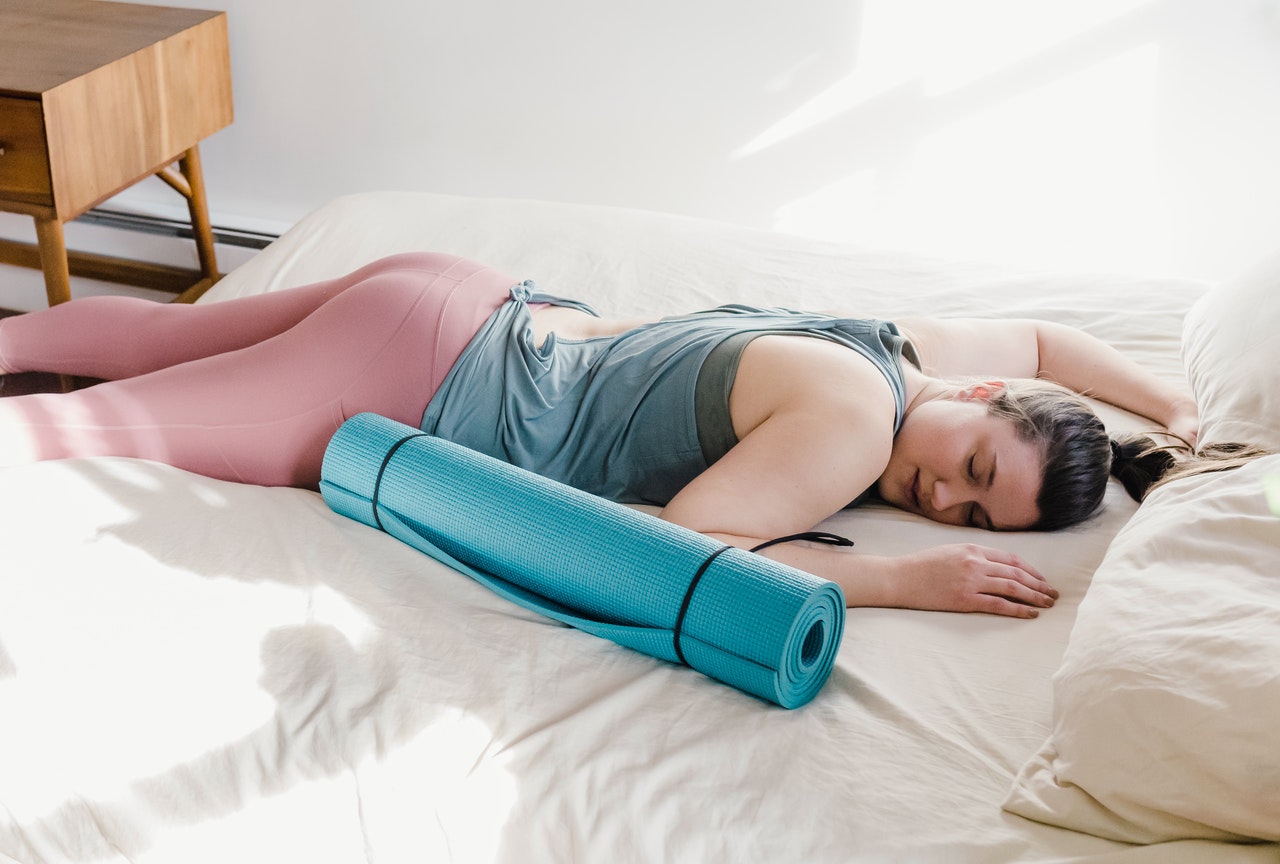Everyone knows that exercising regularly is good for your health—it improves your mood, promotes quality sleep, boosts your energy, and helps combat a number of different health conditions and diseases. But when it comes to exercise, more isn’t always better. While it may seem counterintuitive, one of the best ways to get the most from any fitness regimen is to ensure you’re getting enough hours of sleep every night.
Here are five reasons why adequate sleep is critical to exercise recovery:
1. Provides your body time to heal
Exercising creates microscopic tears in your muscle tissue, and your body needs time to recover and repair it. While you sleep, cells called fibroblasts fix the damage and help the tissue heal and grow stronger. The more hours of sleep you get, the more time your muscle tissues have to regenerate.
Additionally, your muscles store carbohydrates in the form of glycogen, which get broken down during workouts to fuel your exercise. Your muscles need glycogen to perform everyday functions, and getting adequate sleep gives your body the time it needs to replenish your energy stores before your next workout.
2. Reduces risk of injury
Getting enough hours of sleep every night is essential to staying safe during workouts. A lack of sleep can lead to mental cloudiness, delayed reaction time, and increased risk of injury. When you’re overworked or overtired, you’re more likely to misuse equipment, drop a weight, take a misstep, or fall out of form.
On the days you’re tempted to push yourself, try to remember that it’s always better to pace yourself and provide your body the time it needs for optimal recovery than to overwork yourself and risk long-term damage or injury.
3. Prevents muscle fatigue
Exercise depletes your muscles’ glycogen levels, and your body needs glycogen to function. Metabolic overload happens when muscles are exercised to the point of fatigue, and your body has exhausted the amount of glycogen available.
When you’re asleep, your body continues to digest carbohydrates and metabolizes them into glycogen, which is then stored in muscle cells to fuel muscle contractions. This is why getting adequate sleep is necessary to avoid exercise-induced fatigue and soreness—because it provides your body the time it needs to replace energy stores.
4. Improves performance
The National Sleep Foundation recommends that adults over the age of 18 should aim for seven to nine hours of sleep per night. And did you know that increasing sleep time by one hour per night is like the equivalent of getting an extra night’s worth of sleep per week? Making adjustments to your schedule to ensure you’re getting enough hours of sleep per night makes all the difference when it comes to performance.
Overtraining can cause repetitive strain and stress to your muscles, which can lead to decreased performance, reduced endurance, and slower reaction times. Lack of sleep will wear you down physically, mentally and emotionally—whereas adequate sleep will increase your energy and prepare your body for consistently successful workouts.
5. Boosts the immune system
Numerous studies have reported on the many benefits of a good night’s sleep—and, similarly, how a lack of sleep can lead to a number of negative impacts to your overall health. For example, quality sleep can maximize athletic performance, improve concentration and productivity—whereas poor sleep has been linked to a higher risk of heart disease, stroke and depression.
A recently published study found yet another way quality sleep can assist the immune system—by improving T cell functioning. T cells play an important role in the body’s immune system, and researchers found that poor sleep may inhibit the ability of T cells to function as effectively.
Conclusion
Many of us tend to think more is better, especially when it comes to exercise—when, actually, the opposite is true. Taking breaks and getting adequate sleep is critical for achieving optimal performance, regardless of your level of fitness or sport. Skipping rest days or not getting enough hours of sleep can quickly lead to burnout, muscle fatigue or injury. As with many things in life, moderation is key.
